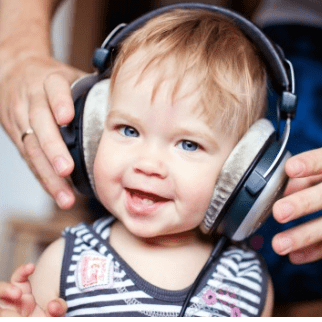When your child has been identified with a hearing loss issue you will be contacted by multiple organizations to help guide you through this process. Below is an overview of these organizations and the work they do.
CHILD AND FAMILY CONNECTIONS (CFC) serves as the regional partner for DHS and they have regional offices throughout Illinois. CFC offices are responsible for managing referrals to EI, determining eligibility for services, the development of the initial Individualized Family Service Plan (IFSP), referral to EI service providers, and transition to school based services at age three.
DCS’s have specialized backgrounds in the area of deafness and are uniquely situated to provide information specific to your child’s hearing, language, and communication needs.
When working with providers, it’s important to ask a variety of questions in order to find a provider who is qualified, who you feel comfortable with, and who can help you achieve your goals for your child.
Here are suggested questions to ask the provider:

Early Intervention determination of ELIGIBILITY occurs once the audiological screening, evaluation and assessments have been completed and received by the CFC. Children with a diagnosed hearing loss are eligible for the early intervention services if they are experiencing developmental delays of at least 30% in one or more areas of development. However, a child is automatically eligible for the early intervention program if he/she has been diagnosed with
INDIVIDUALIZED FAMILY SERVICE PLAN (IFSP) will be developed. The IFSP is both a process and a written document that considers your family’s identified priorities, concerns, resources and important outcomes for you and your family. The IFSP will identify the types of services you and your child will need to reach your outcomes. The IFSP is reviewed and updated every six months with the entire IFSP team. As your child grows and changes, your family may need different services. Although the IFSP is reviewed every 6 months, it can be reviewed and changed more often as needed.
You and the IFSP team will discuss the service options which will best support you and your family in reaching your IFSP goals.
DEVELOPMENTAL THERAPIST – HEARING SPECIALIST (DTH) is a professional with extensive knowledge regarding hearing loss and has a degree in deaf education. A DTH provides services that are specific to your infant’s overall development as it is directly affected by the hearing loss. DTHs can help you through the maze of amplification options, communication and language options, educational choices, assistive technology, and social issues. DTHs can explain and support the language acquisition strategies for your child who is deaf or hard of hearing.
DEAF MENTORS are for families choosing ASL.
The mentors are adults who have a hearing loss, and consider themselves a part of the Deaf community. They will make regular visits to your home to interact with your child and to share their language, culture, and personal knowledge on deafness. Deaf mentors provide a communication model, as well as a connection to the Deaf community.
PARENT LIAISONS are parents of children with hearing loss who have experienced the Early Intervention System first-hand, and can help other parents who are going through the same process.
In addition to the services described above, Early Intervention also provides services in the areas of:
Your service coordinator will explain these services to you. After identifying your family’s priorities and concerns, you and the IFSP team will determine appropriate outcomes and strategies to help support you and your child’s growth towards those outcomes. Remember that you, the parent, are part of the team and an important voice.


We hope you will consider making a gift to support these children. Thank you!
Sign up to be the first to know about new FHSR resources, programs, and events.
FHSR is a qualified 501(C)(3) tax exempt organization. Tax ID number 36-6082810.

FHSR’s MARCOM Gold Award-Winning Website was developed in collaboration with Carlson Integrated, LLC.
MarCom Awards is an international creative competition that recognizes outstanding achievement by marketing and communication professionals. MarCom Awards is administered and judged by the Association of Marketing and Communication Professionals. Judges are industry professionals who look for companies and individuals whose talents exceed a high standard of excellence and whose work serves as a benchmark for the industry. There were over 6,000 entries from 41 countries in the MarCom Awards 2021 competition.